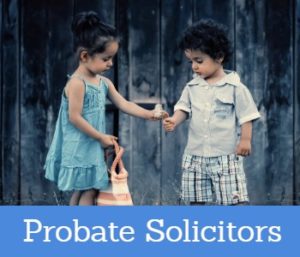 Next of kin meaning, legality, and your rights in the UK
Next of kin meaning, legality, and your rights in the UK
Most people assume that their next of kin have legal rights. If something were to happen to you, your kin would be able to make decisions for you. In fact though, next of kin has almost no meaning in legal terms in the UK.
This can make already difficult times all the more challenging. Because if you want to make important decisions about the care of a loved one, such as making a lasting power of attorney, you need to have the legal right to do so.
Being their next of kin isn’t enough. Let’s take a look at how to make sure you and your nearest and dearest are protected if the worst should happen:
Who Is My Next Of Kin?
The term “next of kin” is used mainly in situations where you need to choose an emergency contact. If something bad happens, this is who will be contacted.
When most people are asked to nominate their next of kin, they’ll likely choose their nearest blood relative. Others might choose their spouse.
But you aren’t limited to these choices. You could opt to make your closest friend or a long-term partner with no legal link your next of kin. You can even have multiple next of kin.
However, the most important takeaway is that the phrase “next of kin” doesn’t confer any sort of legal rights or standing. The only time someone’s next of kin actually matters in legal terms is when that person is under 18 years of age.
What Are Your Next Of Kin’s Legal Rights?
Being someone’s next of kin (or making someone your next of kin) gives you no legal rights or standing.
If you don’t put actual legal protections in place, such as a lasting power of attorney, this can, and regularly does, create all kinds of problems.
Picture a loved one who is seriously ill. They can’t make decisions about their own care. But you can’t either because just being their next of kin gives you no rights to do so.
That’s why it’s important to give actual legal rights to someone you want to make your next of kin.
How To Give Legal Rights To Your Next Of Kin
To give your next of kin the kind of legal rights that most people assume they have automatically you need to appoint them as your attorney.
This is normally done by setting up what is known as a Lasting Power of Attorney (LPA). There are two different types of these legal rights. They cover slightly different decisions you might need to make for someone (or have them make for you) when you no longer have the mental capacity to do so:
- LPA for property and financial decisions – things like paying bills or rent, collecting rent, maintaining property they own, or managing their bank accounts or investments.
- LPA for health and welfare – things like deciding where or how they are cared for, right down to the things they eat or who they can see in some cases.
It’s important to understand that a Lasting Power of Attorney needs to be set up in advance of the situation that requires it to come into effect.
A common example would be when a person knows they are likely to lose the ability to make decisions in future because they are suffering from dementia. In this case, they would set up LPAs that would appoint attorneys they trust to make vital decisions for them.
Again, this can’t be done after the fact. The LPAs need to be prepared in advance – when the person (the donor who is handing over their decision-making rights) has the mental capacity to do so.
Being Next Of Kin But Not An Appointed Attorney
If you are a person’s next of kin but haven’t been appointed as their attorney, you can apply to the Court of Protection (the court responsible for these matters) to gain the right to act for them.
The process is by no means guaranteed. That’s why it’s safest and easiest for everyone concerned to set up the right LPAs before a person who is expected to lose mental capacity does so.
Dealing With An Estate Without A Will
If a person you love has passed away without a will, known as dying intestate, you do have some legal right to deal with their estate (their assets, property, and so on) as their next of kin.
Once more though, the legal standing and meaning of next of kin here aren’t automatic. You’ll need to apply for a legal right called a Grant of Letters of Administration. Again, this is why it’s so important to write a will and prepare in advance. Simply being someone’s next of kin is no safety net at all.
Need to speak with an expert about your particular situation?
Let’s chat about it. Solicitors Near Me can find you just the right friendly, approachable legal specialist to talk about powers of attorney.
Set up a cost and commitment-free chat with one of our supportive advisors today.
Find A Powers Of Attorney Lawyer Near You
To be connected to a specialist powers of attorney lawyer near to where you live, please either call us now on 0845 1391399 or complete a Free Online Enquiry.

 How Long Does Probate Take UK? After a death, an estate executor or administrator is responsible for winding up the deceased’s affairs. This often involves obtaining a
How Long Does Probate Take UK? After a death, an estate executor or administrator is responsible for winding up the deceased’s affairs. This often involves obtaining a  inherit your estate. Making a Will is also known to reduce the risk of disagreements arising after someone’s death. If there is no Will, then relatives may end up arguing in the difficult weeks and months following a death and end up in a stressful and lengthy dispute.
inherit your estate. Making a Will is also known to reduce the risk of disagreements arising after someone’s death. If there is no Will, then relatives may end up arguing in the difficult weeks and months following a death and end up in a stressful and lengthy dispute.